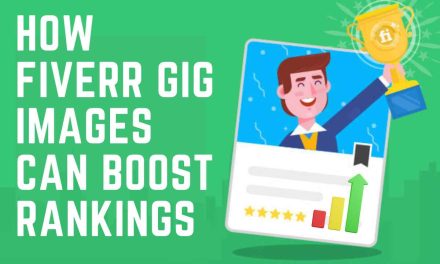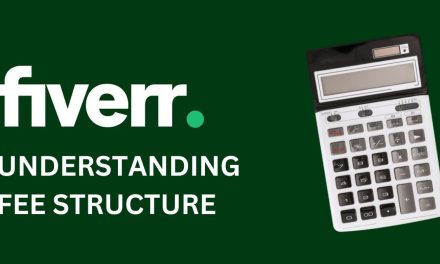What is Freelancing?
Contents
Freelancing is a type of work arrangement where individuals provide their services to clients on a temporary or project basis. Freelancers can work in various fields, including writing, graphic design, programming, marketing, and many other industries. Most times, freelancers have the flexibility to choose their own hours and work location.
One benefit of freelancing is the ability to control your income stream. Instead of earning a fixed salary from an employer, freelancers might earn more by taking on additional projects or charging higher rates for specialized skills. But, it’s important to note that freelancers are in charge of for managing their own taxes and business expenses.
If you’re interested in starting a career as a freelancer, it’s important to identify your strengths and determine which services you can offer to clients. It’s also crucial to build a portfolio of your past work so potential clients can see what you have accomplished in the past. Finally, networking with other professionals in your industry can help you find new opportunities and grow your client base.
Benefits of Freelancing

One of the most significant benefits of freelancing is having control over your career path. As a freelancer, you get to choose the projects you work on and the clients you work with. This means that you can focus on your strengths and interests and build a portfolio that reflects your skills and experience. Freelancers have greater flexibility in their work schedule, which allows them to balance their personal life and other commitments.
Another advantage of freelancing is the potential for higher earnings. Since freelancers set their own rates based on market demand, they have more control over how much they earn per project or hour than traditional employees do . Freelancers also have lower overhead costs since they do not need to pay for office space, equipment or other expenses associated with running a business.
Finally, as a freelancer, you can gain valuable experience in different industries and niches by working on diverse projects for various clients. This not only keeps your work interesting but also helps develop new skills that can be applied to future projects or full-time positions if desired. Ultimately, the benefits of freelancing make it an attractive option for individuals looking to start their career as self-employed professionals.
Defining Your Target Market

Defining your target market is an essential step when starting a career as a freelancer. Your target market is the group of people who are most likely to need and use your services. It includes characteristics such as age, gender, location, interests, and industry. Knowing your target market will help you tailor your marketing efforts and create content that appeals to their specific needs.
To define your target market, start by identifying the problem or pain point that you can solve for your clients. Ask yourself questions such as “Who would benefit from my services?” or “What type of client do I enjoy working with?” You can also conduct research on existing clients to find patterns in their demographics and behaviors. Once you have a clear understanding of your target market, you can focus on building relationships and providing value to them through networking events or social media platforms.
Keep in mind that defining your target market is not a one-time process but should be revisited regularly as you grow in your career as a freelancer. As you gain more experience and expand into different industries or niches, adjust and refine your definition accordingly. By understanding who you want to serve and what they need from you, you’ll position yourself for success as a freelancer.
Developing Your Skillset

To start a career as a freelancer, it’s essential to develop your skillset continuously. Keeping up with the latest trends and best practices in your field is critical for success. You must invest time and effort into learning new skills and improving existing ones if you want to stay competitive in the marketplace.
One way to develop your skillset is by taking online courses or attending workshops and conferences related to your area of expertise. These resources can help you sharpen your skills, learn new techniques, and stay up-to-date with industry developments.
Another effective method for developing your skillset is through practice. As freelancers, we often work independently, so it’s crucial to set aside some time each day to practice our craft. Practicing regularly can improve our skills and build confidence in our abilities, making us more marketable as freelancers.
Building Your Brand

As a freelancer, building your brand is crucial to your success. Your brand is what sets you apart from others in the industry and can help potential clients find you. To start building your brand, start by defining your niche and target audience. What services do you offer? Who are you offering them to?
Once you have defined your niche and target audience, it’s time to create a strong visual identity. This includes creating a logo, selecting colors that represent your brand, and developing a website that showcases your work.
also to visuals, building relationships with clients and networking in the industry is important for growing your brand. Attend conferences or events where potential clients may be present, connect with other freelancers in the same field on social media platforms such as LinkedIn or Twitter, and always provide excellent customer service to build strong relationships with clients who can refer others to work with you.
Establishing an Online Presence

One of the most important things to do when starting a career as a freelancer is to set up an online presence. This means creating profiles on various platforms such as LinkedIn, Twitter, and Instagram. These profiles should showcase your skills and experience, as well as provide a glimpse into your personality.
It’s also important to have a website that serves as your online portfolio. This website should include examples of your work, client testimonials, and contact information. Make sure the design is clean and professional-looking so potential clients take you seriously.
Finally, don’t forget about networking. Joining online groups or attending virtual events can help you connect with other freelancers in your field or potential clients who may be looking for someone with your expertise. Building relationships and establishing yourself within the community can lead to more job opportunities in the future.
Finding Clients

One of the biggest challenges that freelancers face when starting their careers is finding clients. but, there are several strategies you can use to find potential clients and build your portfolio. One effective way to start is by networking with people in your industry. Attend events or join online groups related to your niche, and connect with other professionals who may be looking for a freelancer like you.
Another way to find clients is by leveraging social media platforms such as LinkedIn, Twitter, and Instagram. These platforms offer an opportunity to showcase your work and engage with potential clients. You can also use job boards like Upwork or Fiverr to search for freelance opportunities.
Finally, don’t forget traditional marketing techniques such as cold emailing or direct mail campaigns. Although these methods can be time-consuming, they often yield positive results if done correctly. By combining various strategies and consistently seeking new opportunities, you’ll increase your chances of finding clients and building a successful freelance career.
Conclusion:
Start Freelancing Today!











Recent Comments